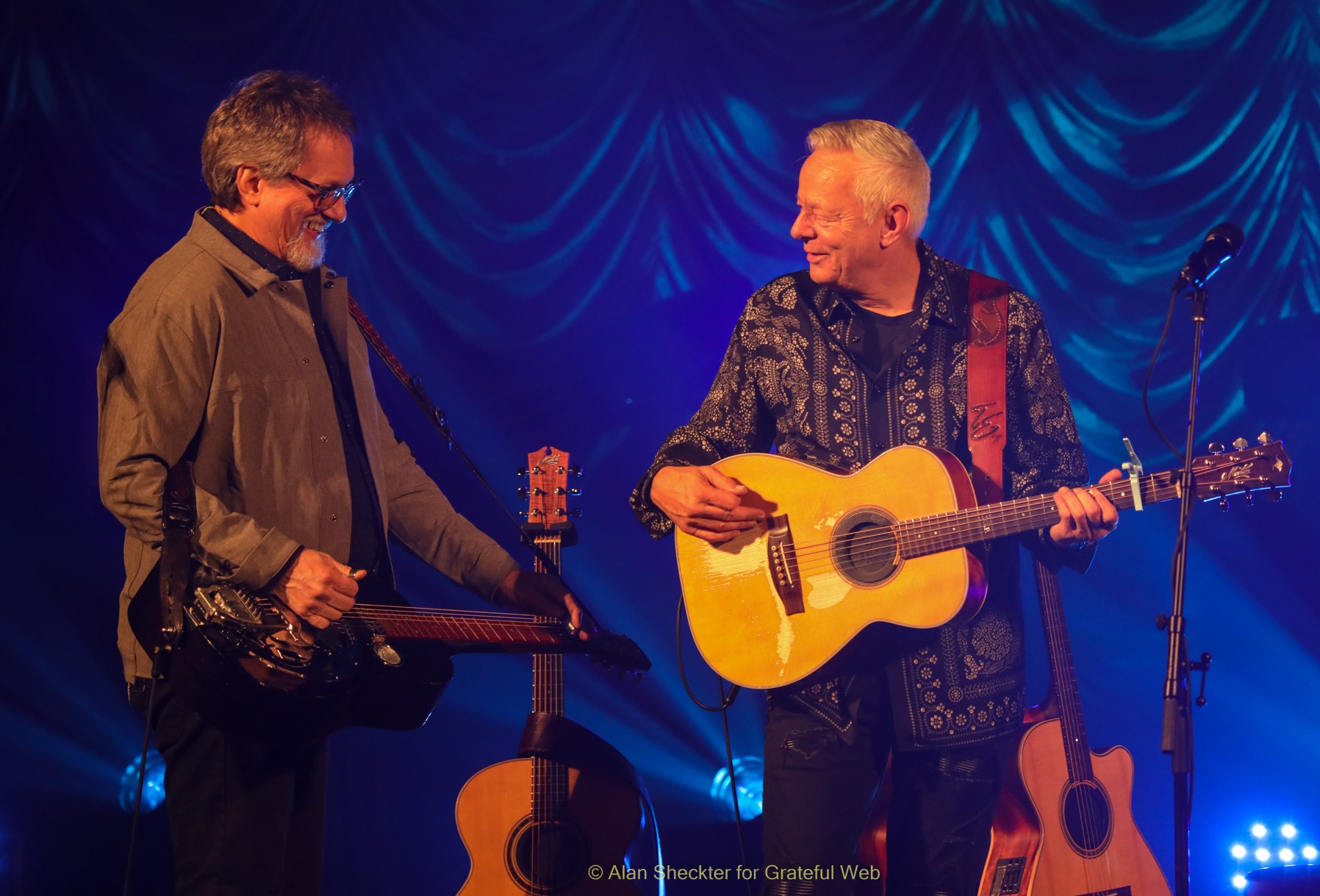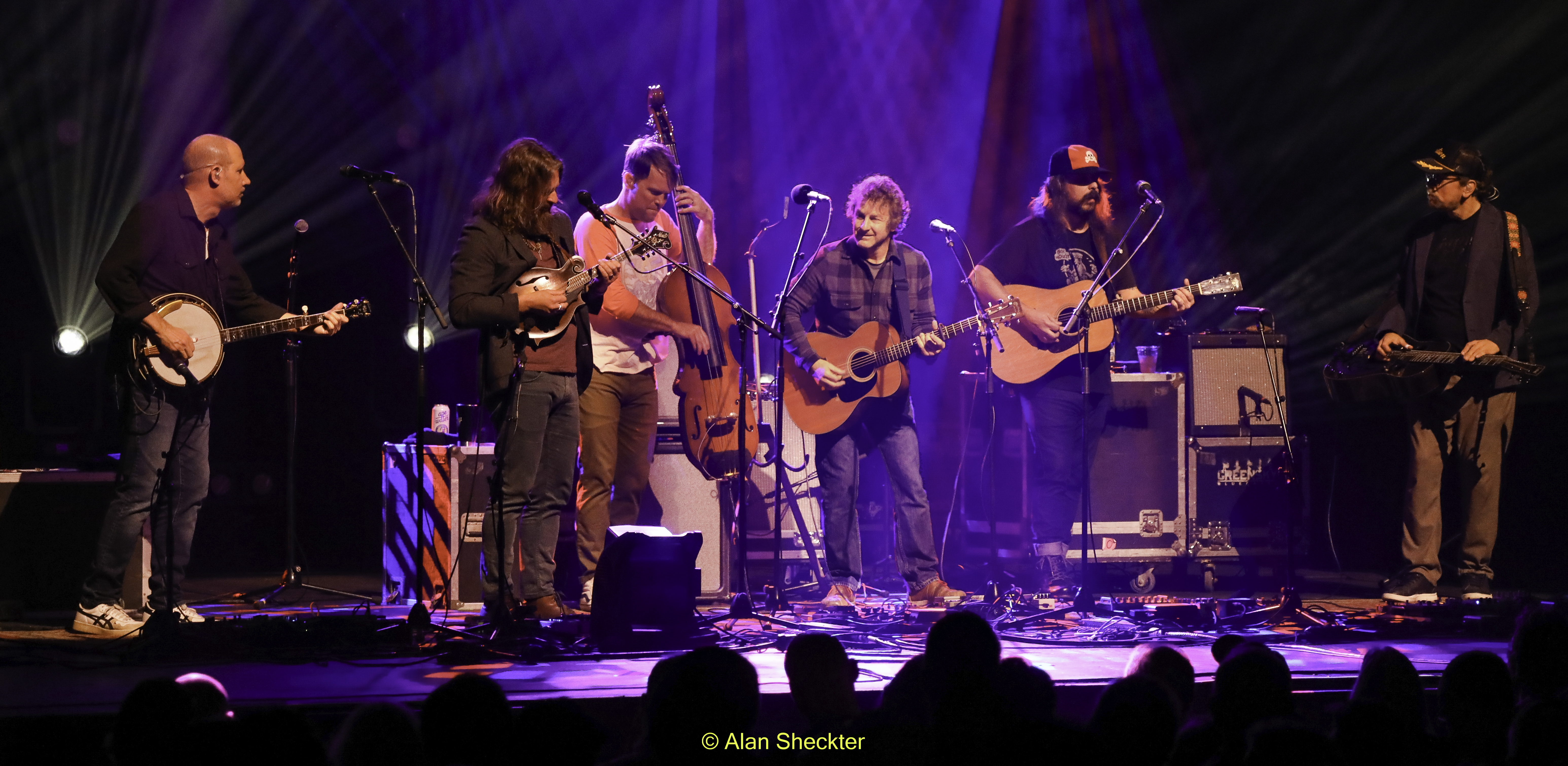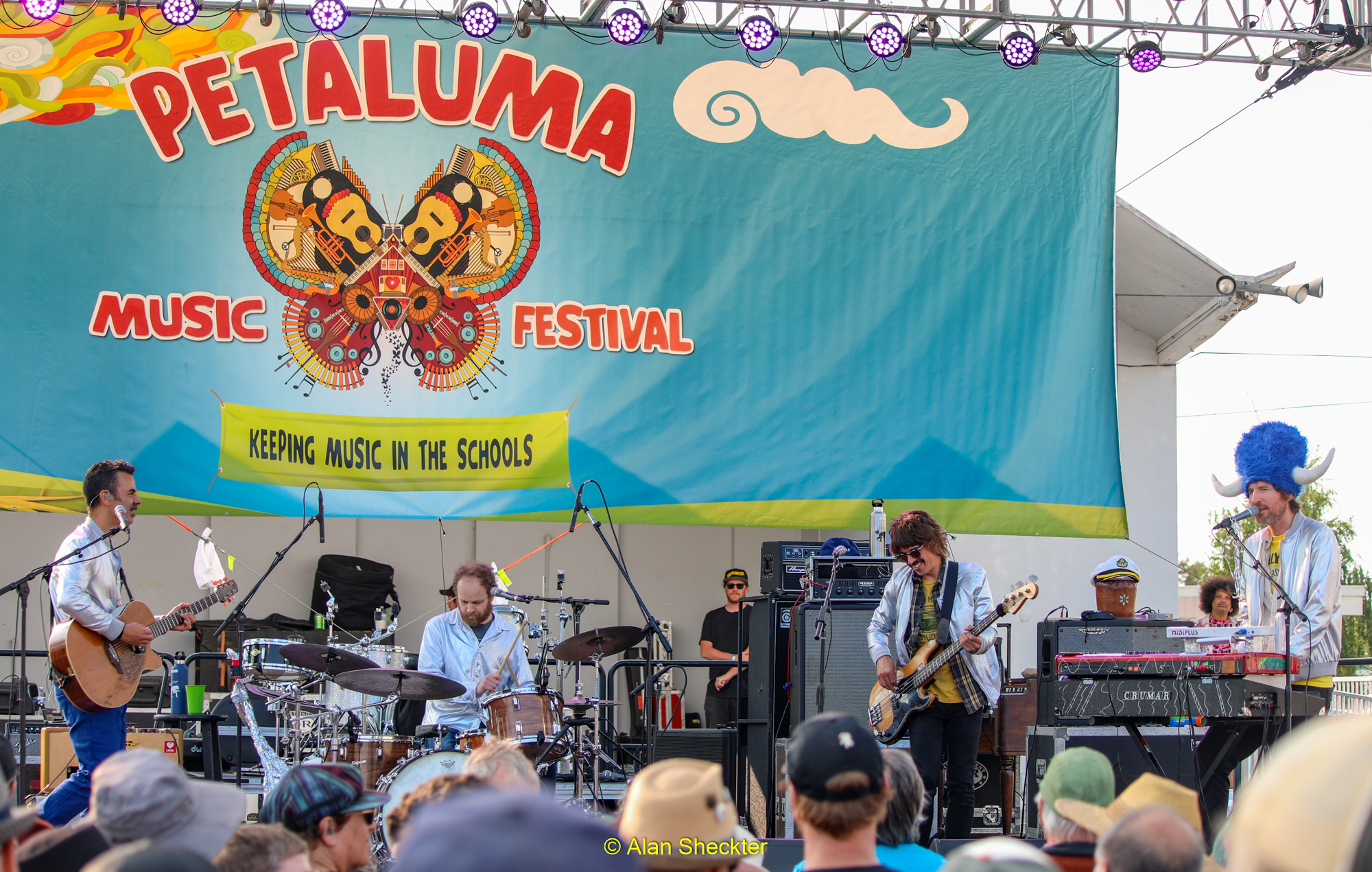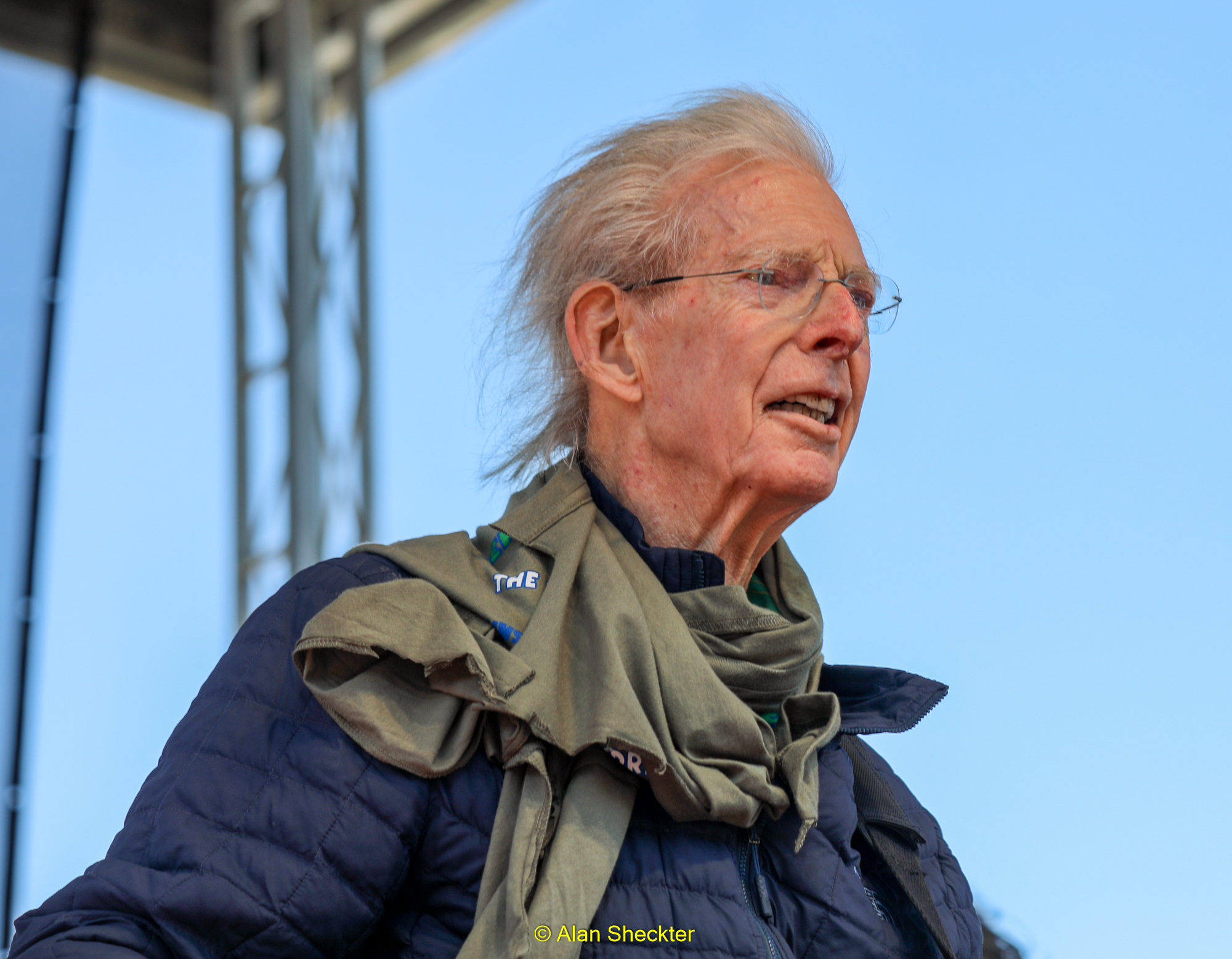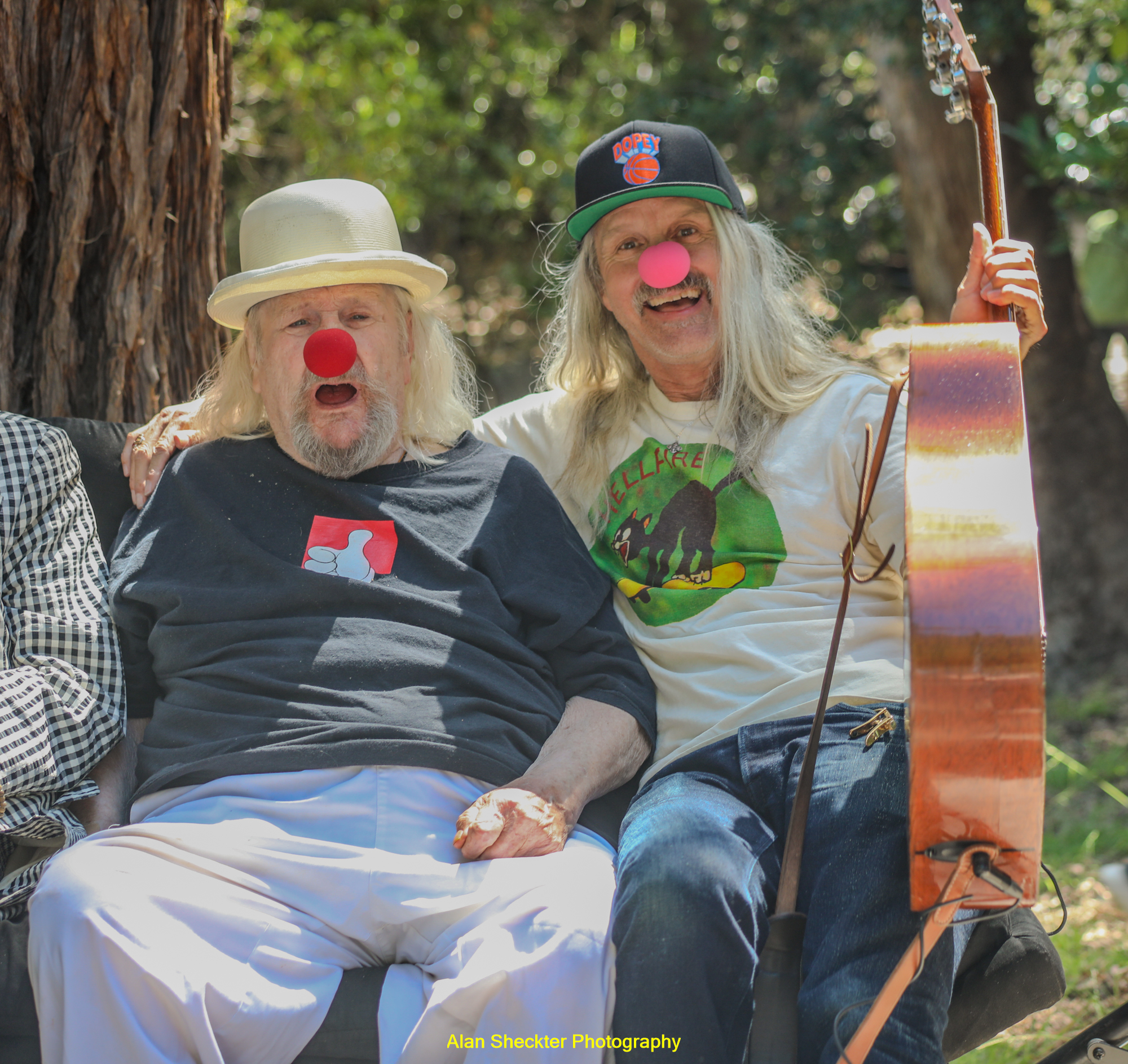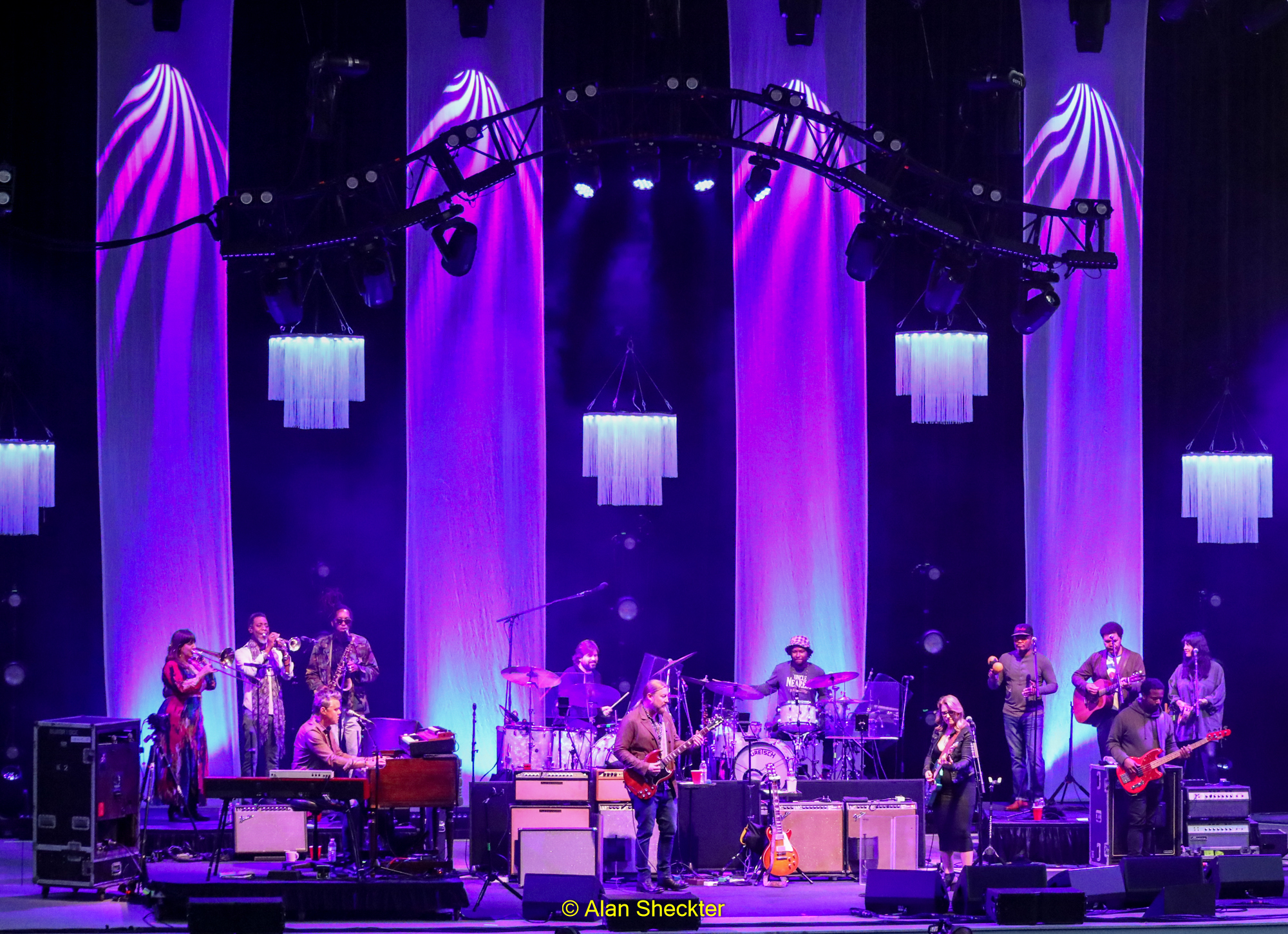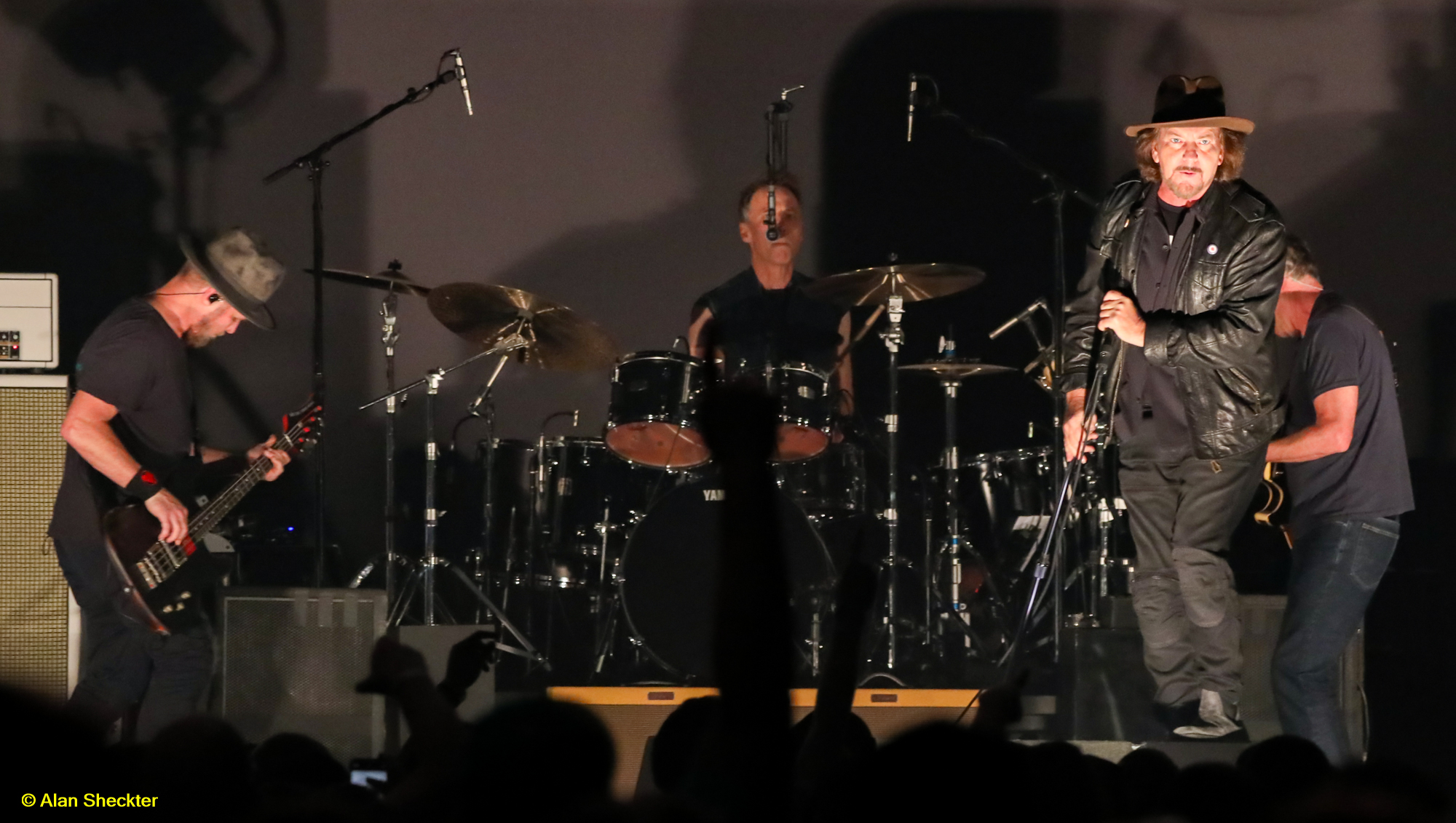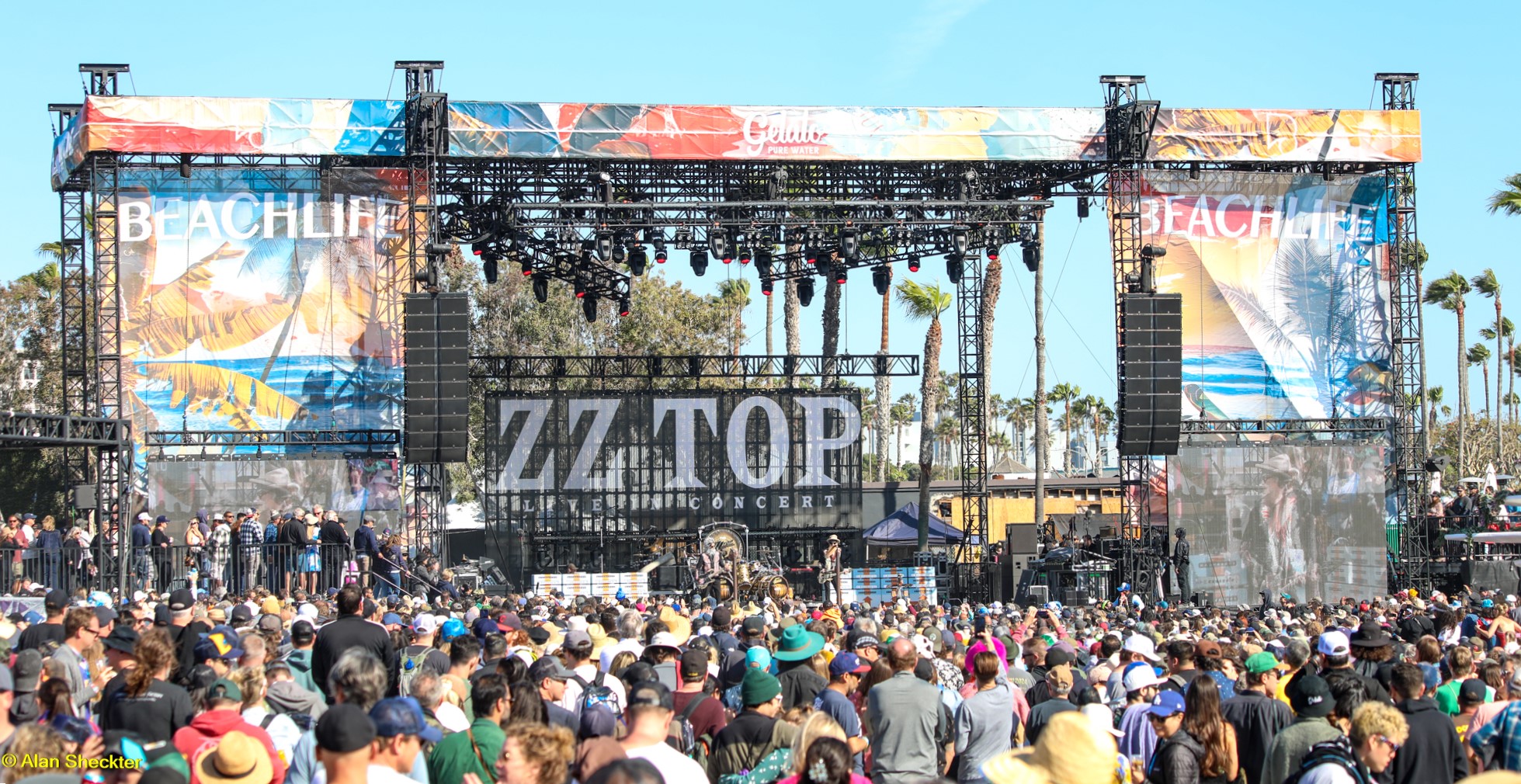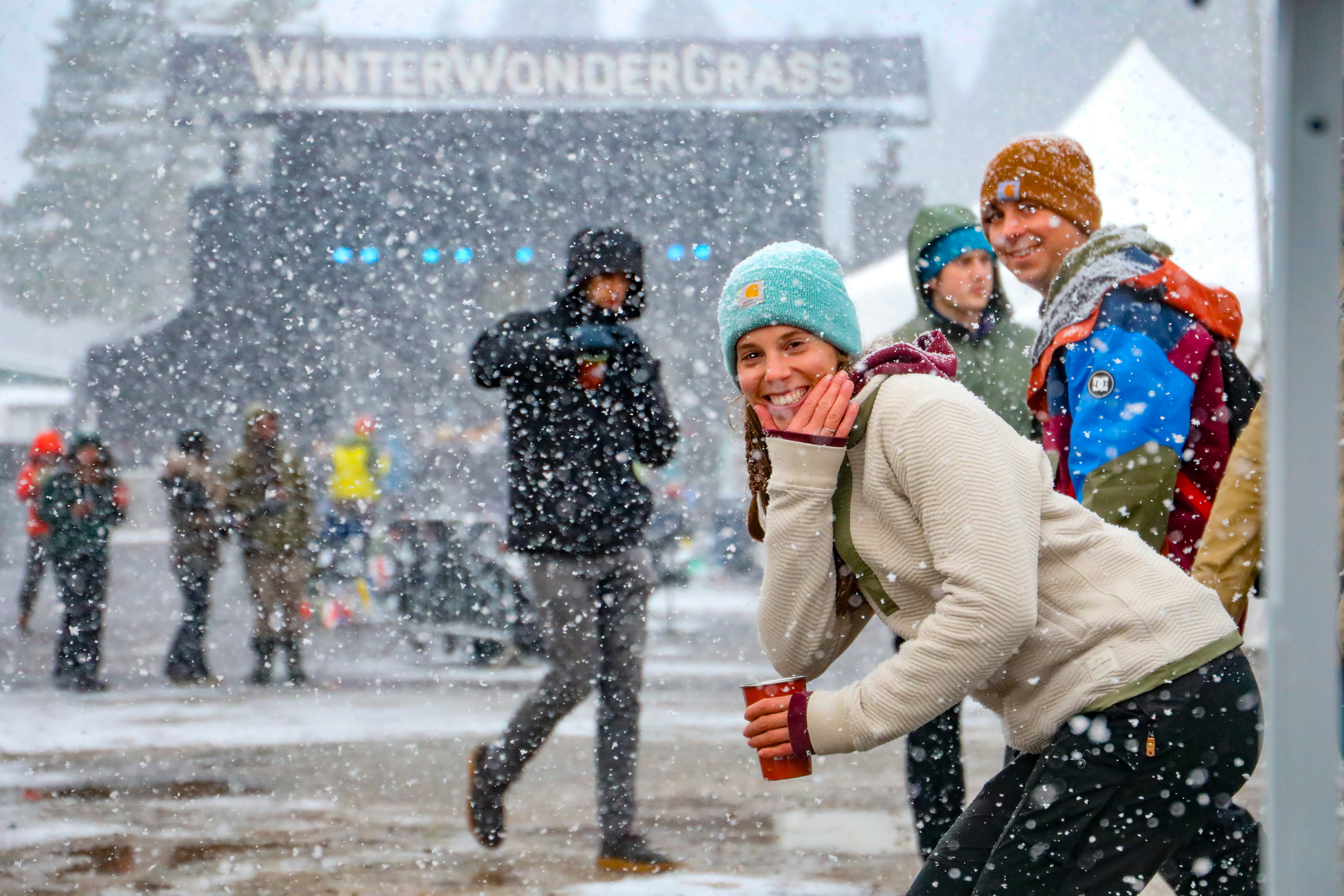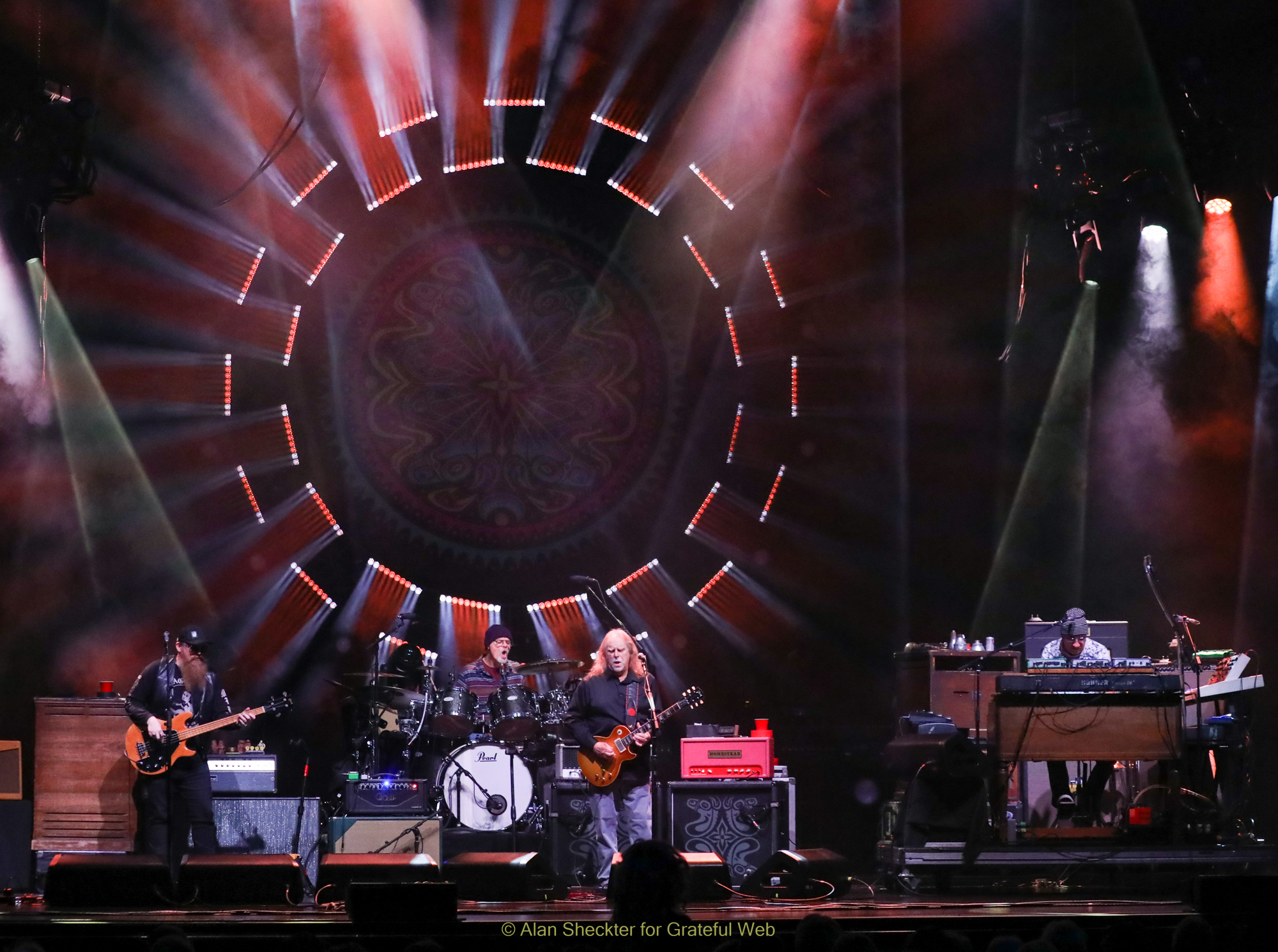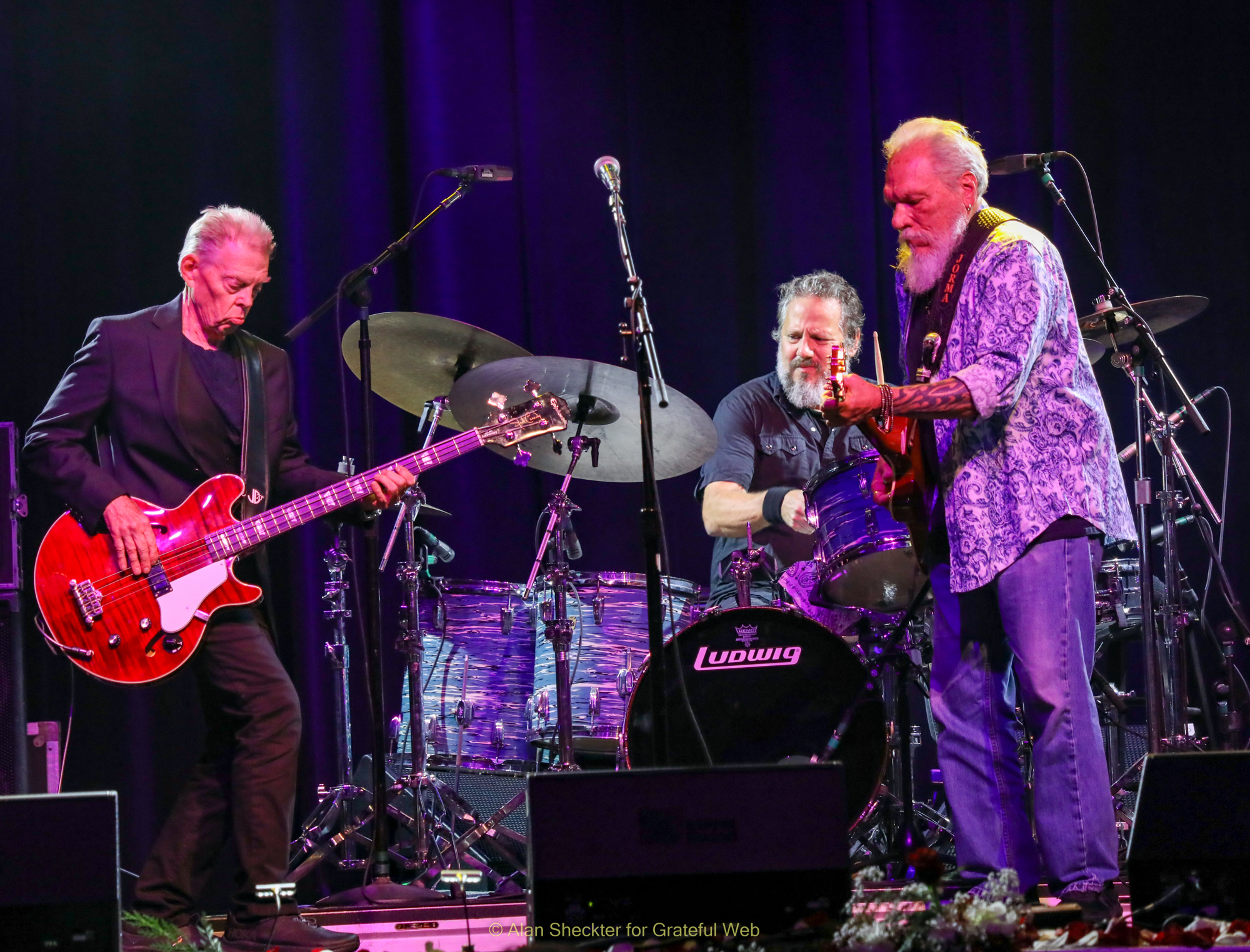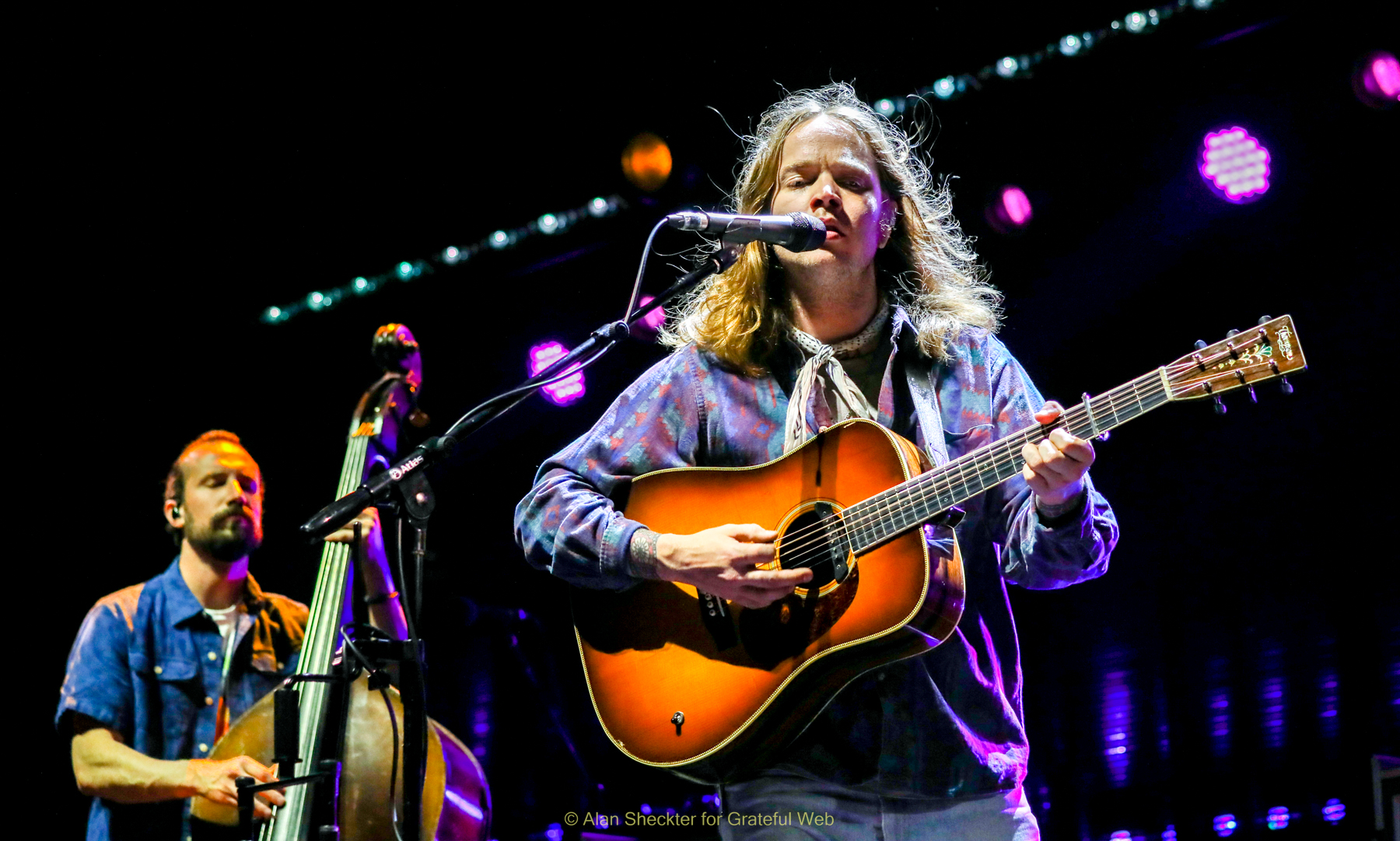Guitar-master dexterity was on dazzling display at the sold-out Crest Theatre in Sacramento on December 13, headlined by one of the finest and most heralded guitarists in the land, Tommy Emmanuel. His set was preceded by a duet featuring dobro whiz and 32-time Grammy nominee Jerry Douglas along with Daniel Kimbro on double bass. All three musicians joined for the closing musical sequence on this final evening of their tour.
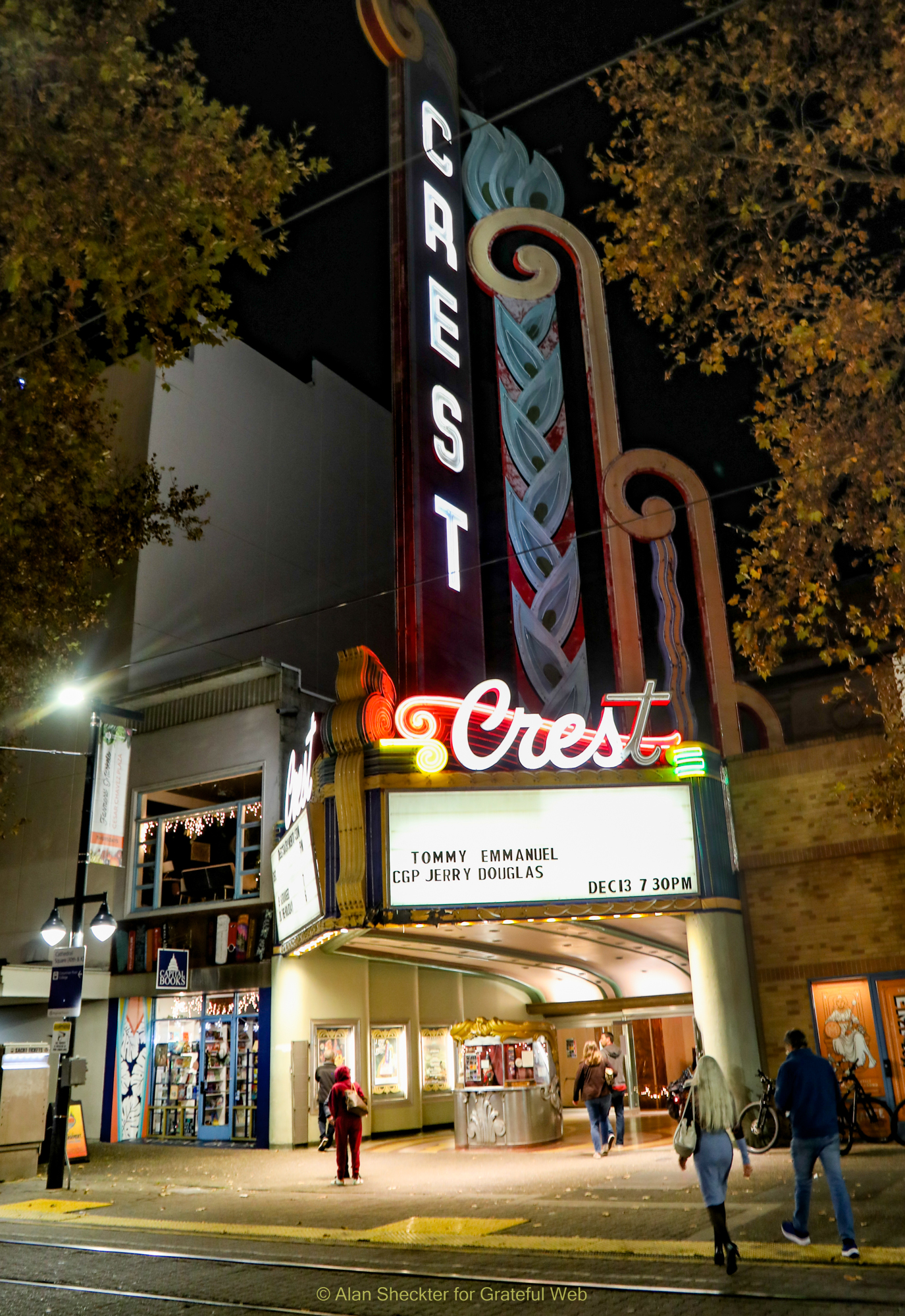
Emmanuel, an affable and unequally skilled and innovative acoustic guitarist and four-time winner of Australia’s Best Guitarist Award, was spellbinding throughout his two-hour-plus set. Alternating between four Maton-brand guitars – all made of Australian indigenous wood, he said – Emmanuel’s performance was continuously fresh and interesting as he demonstrated his uncanny ability to incorporate amazing fingerpicking techniques and improvisational wizardry into pieces of music, offering changes of pace from poignant ballads to frenetic blues classics. The set, which was about three-quarters instrumentals and one-quarter lyrical songs, included a couple of beloved Christmas songs, a Beatles medley, and a bevy of offerings that touched on country, blues, rock, bluegrass, classical, and jazz.
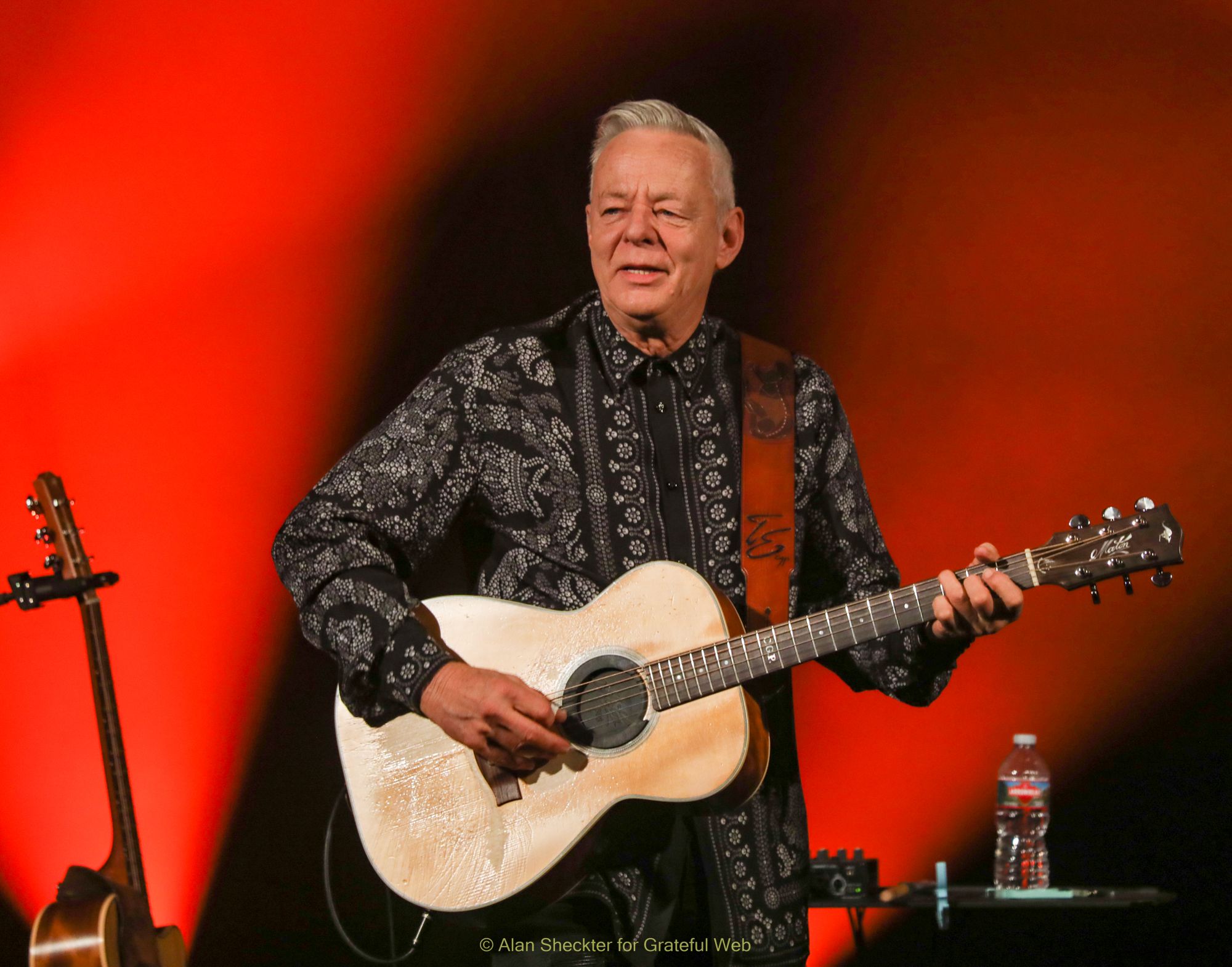
In case his strumming and picking weren’t enough, Emmanuel delivered an epic, otherworldly version of his multidimensional 2000 composition, “Mombasa,” which started out as a tender, melodic instrumental until he then unleashed all sorts of fascinating percussive sounds out of his guitar by hitting it like a bongo and alternately striking the microphone with a brush – and sometimes with his own head.
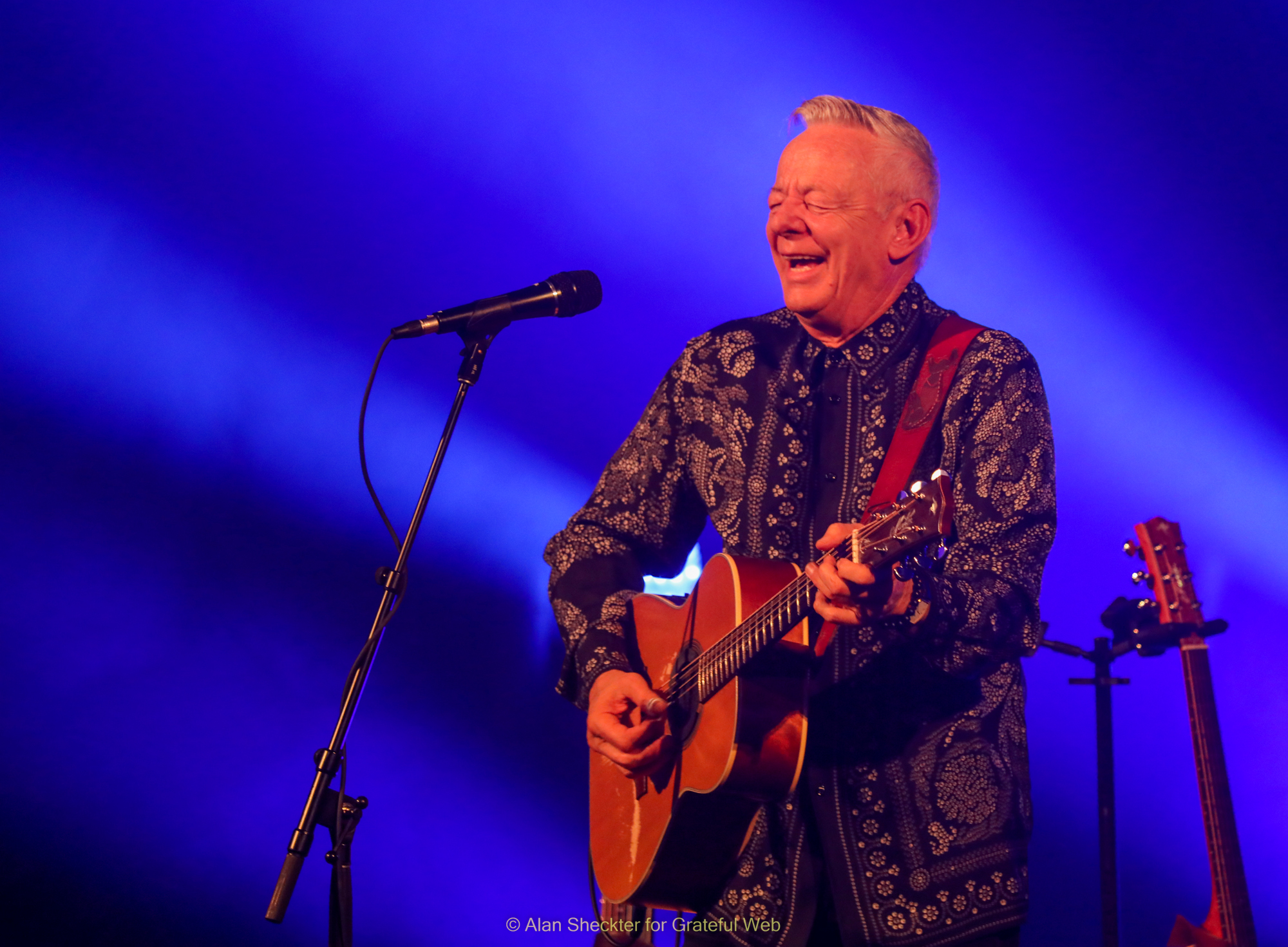
Early in the set, Emmanuel delivered a spritely three-tune combo, singing and picking on “The Guitar Rag” (first recorded by Sylvester Weaver in 1927), followed by Merle Travis’s “16 Tons,” which was made famous by Tennessee Ernie Ford in 1955, and finally, the traditional “Nine Pound Hammer.”

Perhaps there’s never been a performer more comfortable and exuberant onstage than Emmanuel. At one point during that medley, at the completion of a verse, Emmanuel proclaimed with a grin, “Take it boys!” and then turned around behind him as if to look for a backing band while he alone produced the sounds of three or more musicians on his guitar. Soon after, he introduced “Precious Time,” which appears on his new release, “Accomplices Two” as a duet with Sierra Hull, by saying, “I wrote this in 1989 when I had hair and teeth.”
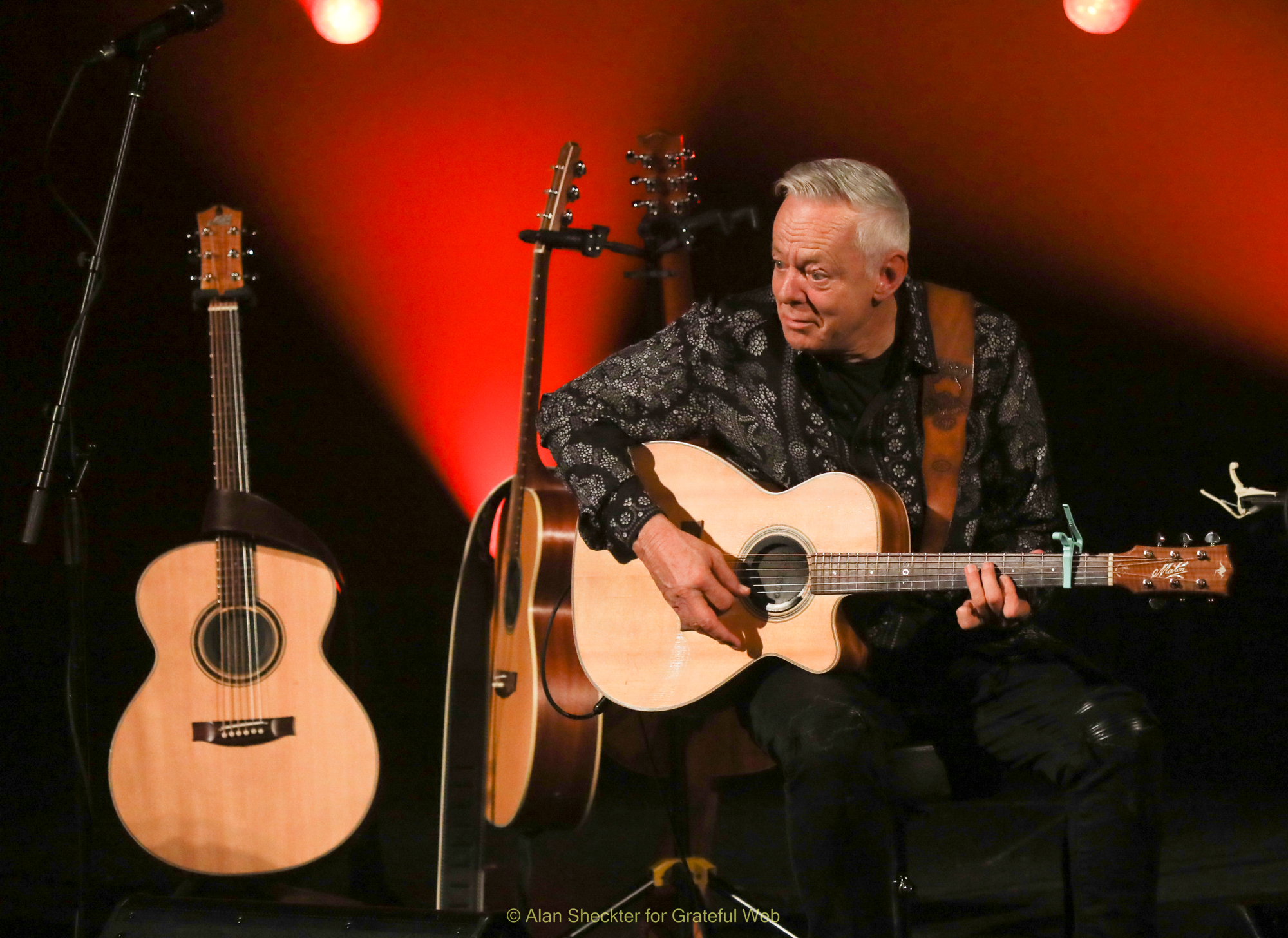
Midway through the set, Emmanuel offered “Jingle Bells” and “Rudolph the Red-Nosed Reindeer,” each with some fancy, complex instrumental treatments while never losing focus of the original melody. Emmanuel incorporates the (Merle) Travis picking style, explained on the Fender Guitars website: “The core concept of Travis picking is simple: you keep a steady beat with alternating bass notes using your thumb. At the same time, you use your index and/or middle fingers to play treble notes, often in a syncopated rhythm.”
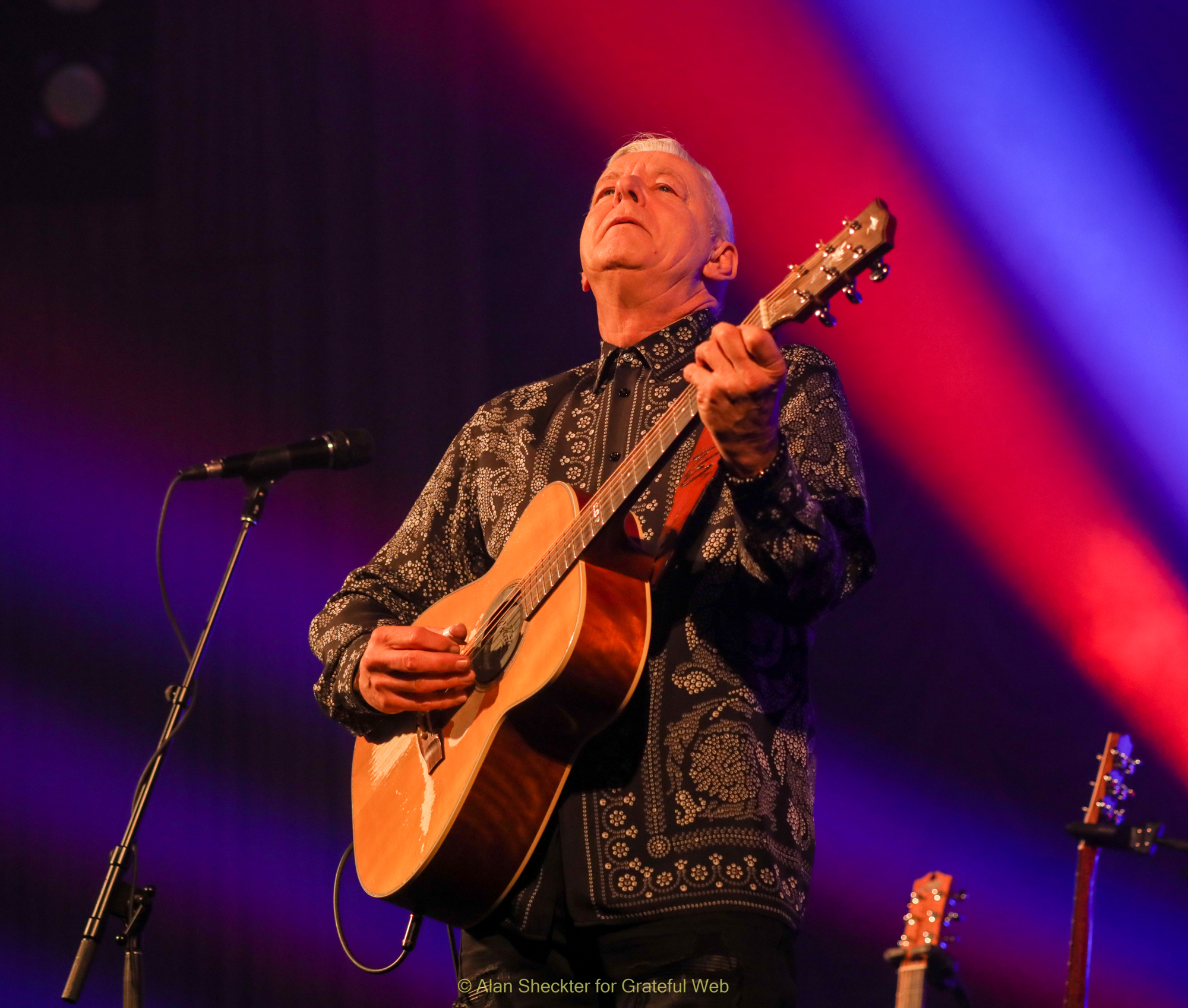
Emmanuel’s set also included a lovely instrumental version of the Richard Rogers and Lorenz Hart standard, “Blue Moon”; “The Tall Fiddler,” which is a lightning-quick instrumental he wrote in honor of fiddler Byron Berline, who died in 2021; and an inspiring version of John Lennon’s “Imagine,” in which the audience (capacity of the Crest is 975) helped provide the vocals. Emmanuel also performed an a capella version of “Today is Mine” (Jerry Reed, 1968), which included the lyrics:
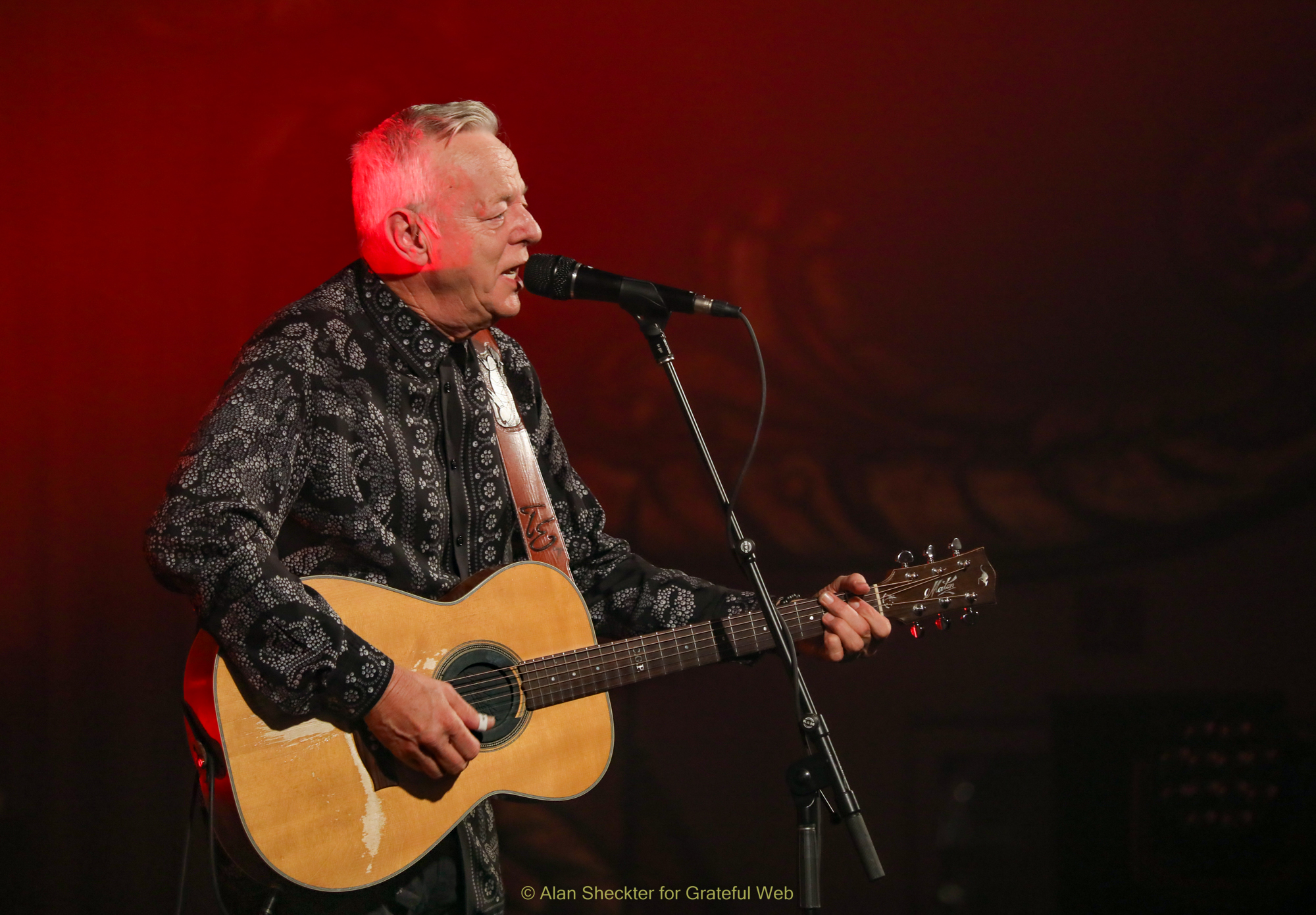
When the sun came up this morning / I took the time to watch it rise / And as its beauty struck the darkness from the skies / I thought how small and unimportant / All my troubles seem to be / And how lucky another day belongs to me.
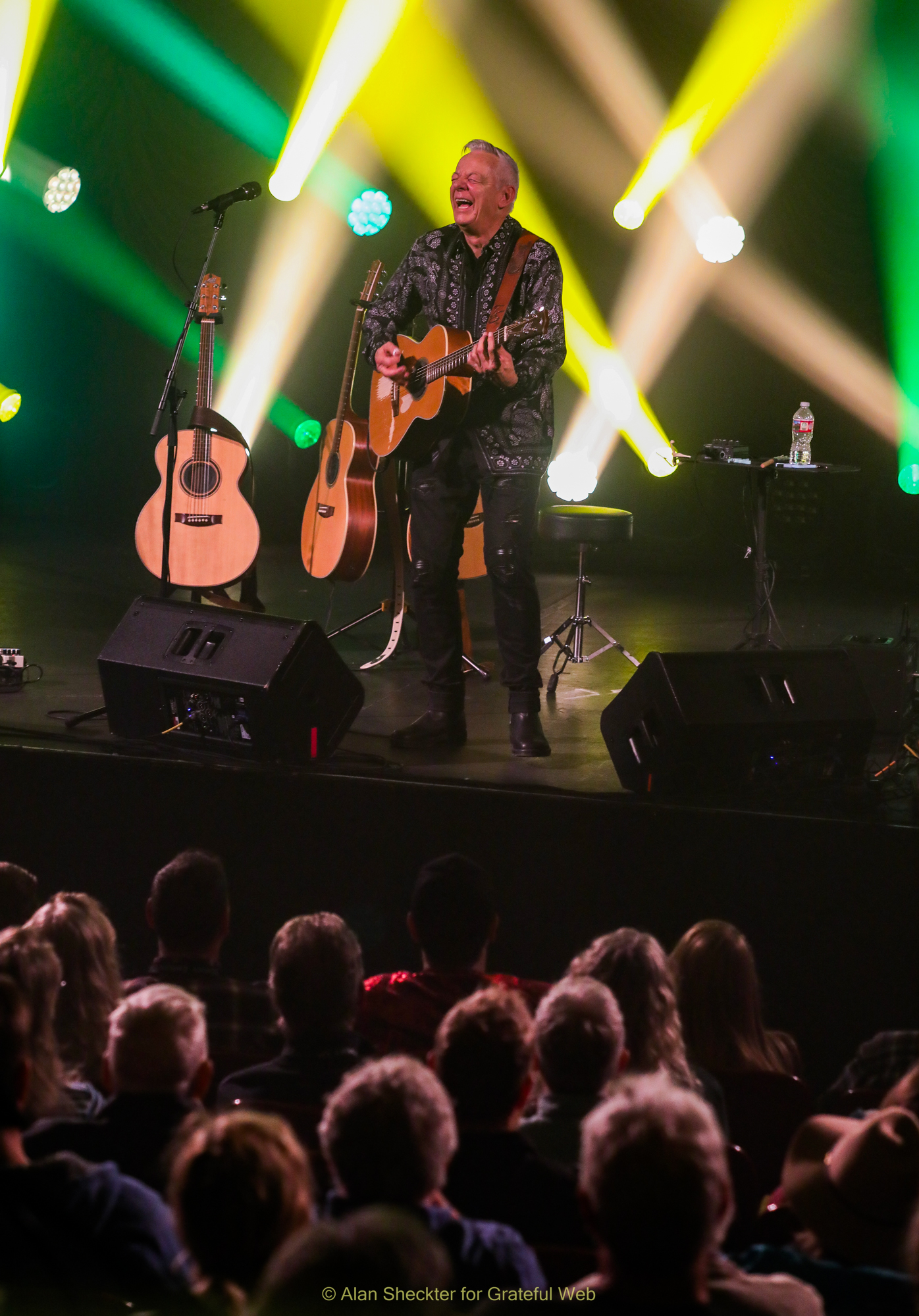
The show also included a crowd-pleasing instrumental Beatles medley that consisted of generous chunks of “I Feel Fine,” “Please Please Me,” “While My Guitar Gently Weeps,” “Day Tripper,” and “Lady Madonna,” all capped off with Mason Williams’ famed 1968 instrumental hit, “Classical Gas.”
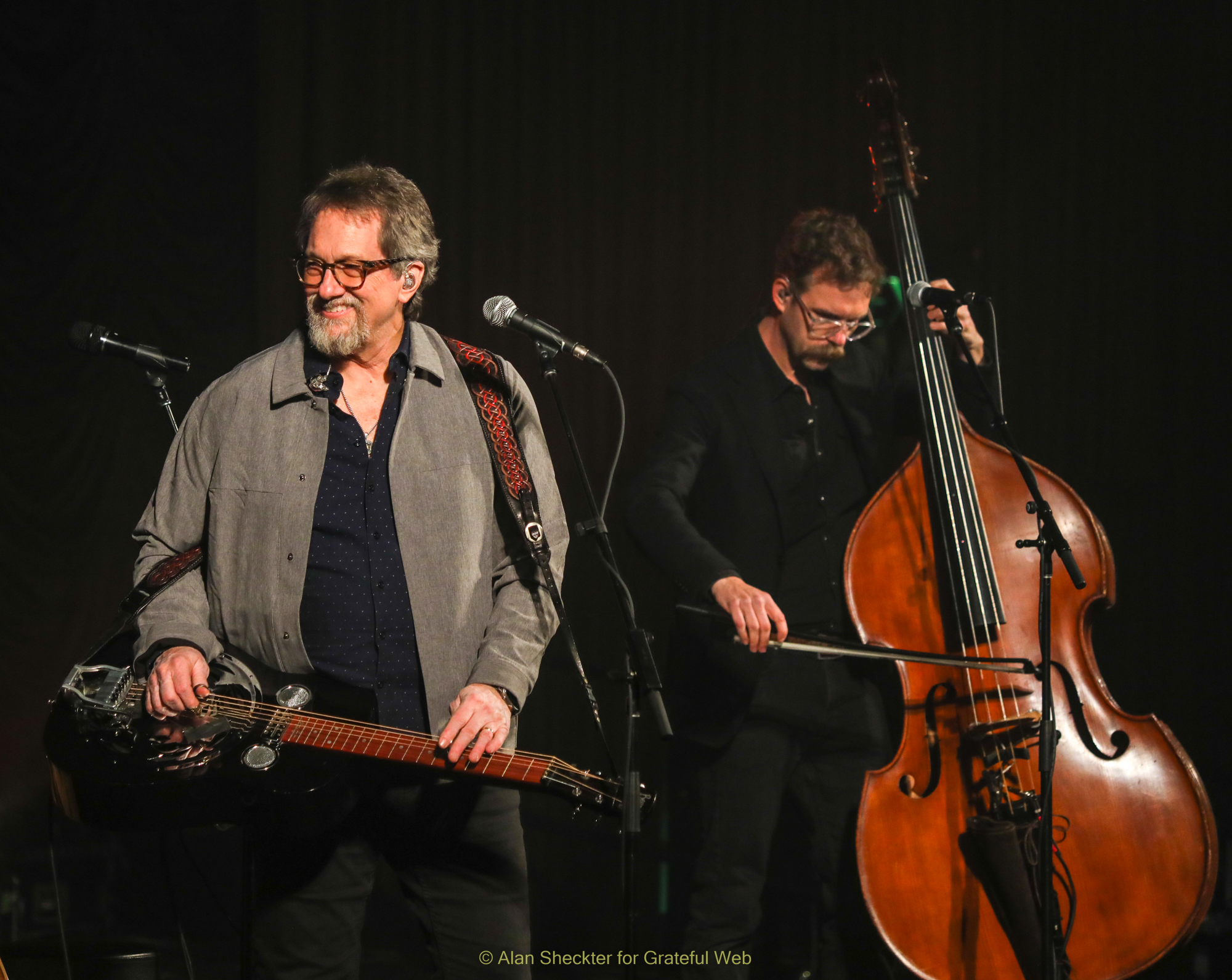
Finally, Douglas and Kimbro returned to deliver a closing segment that included an instrumental piece as well as “Deep River Blues” (recorded by the Delmore Brothers as “Big River Blues” in 1933 and Doc Watson in 1964). The trio offered an encore of “Mama Knows,” a new Emmanuel song that features Douglas on the new record, “Accomplice Two.”
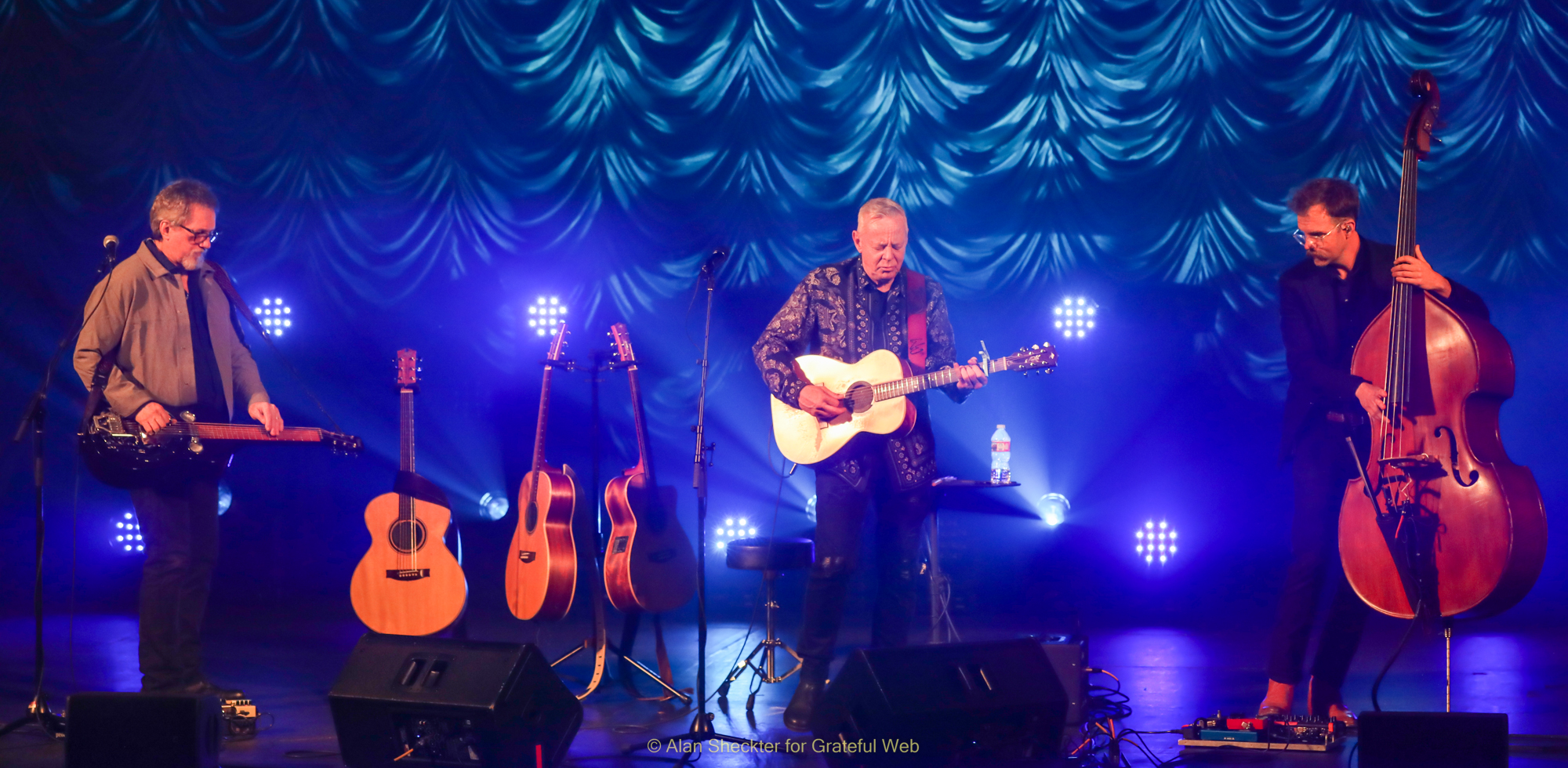
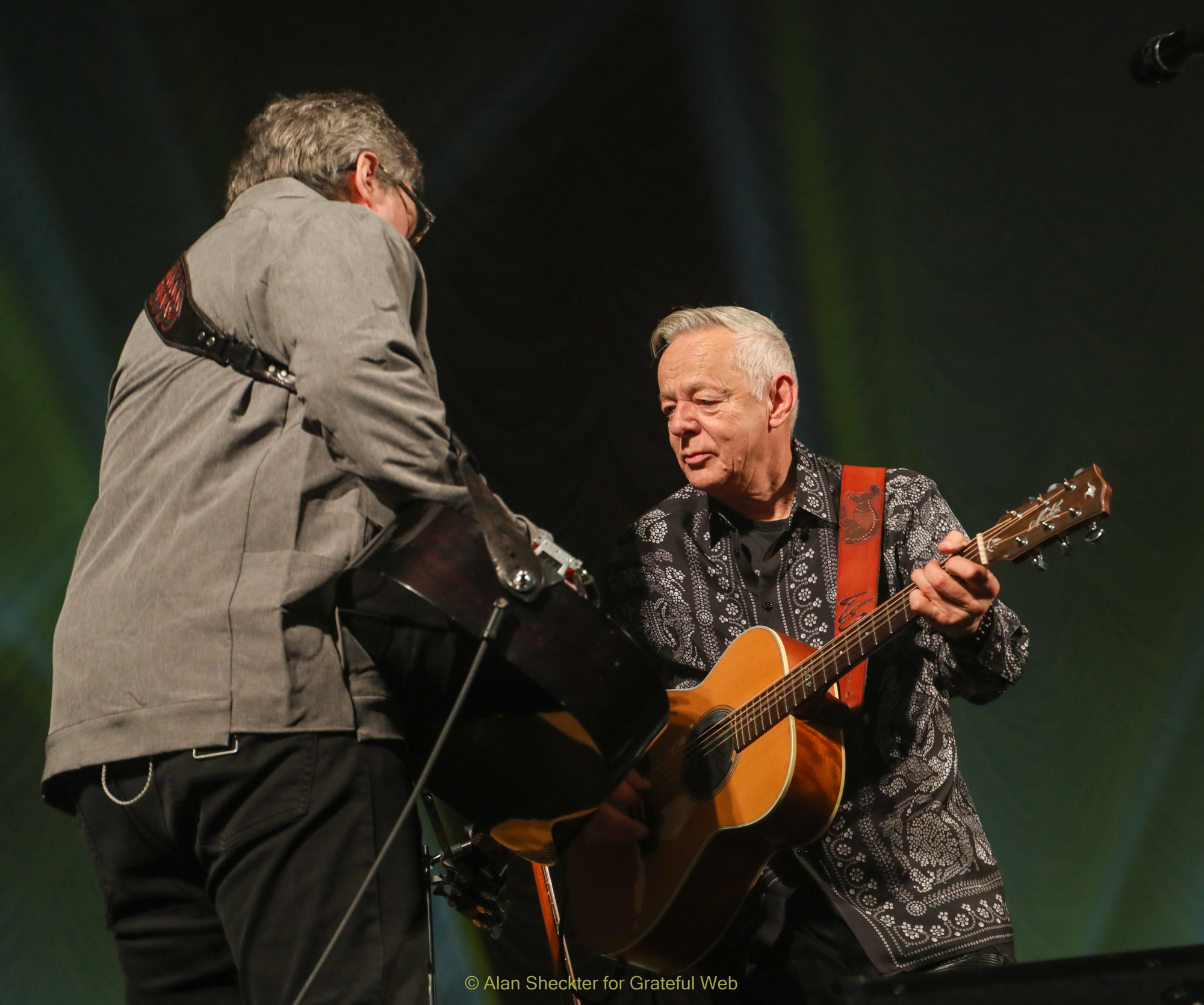
Emmanuel, a nine-time Australian Recording Industry Association Music Awards nominee and two-time winner, is slated to start 2024 touring with Molly Tuttle all over the United Kingdom in January, and a Western U.S. tour with Rob Ickes and Trey Hensley in late February and early March.
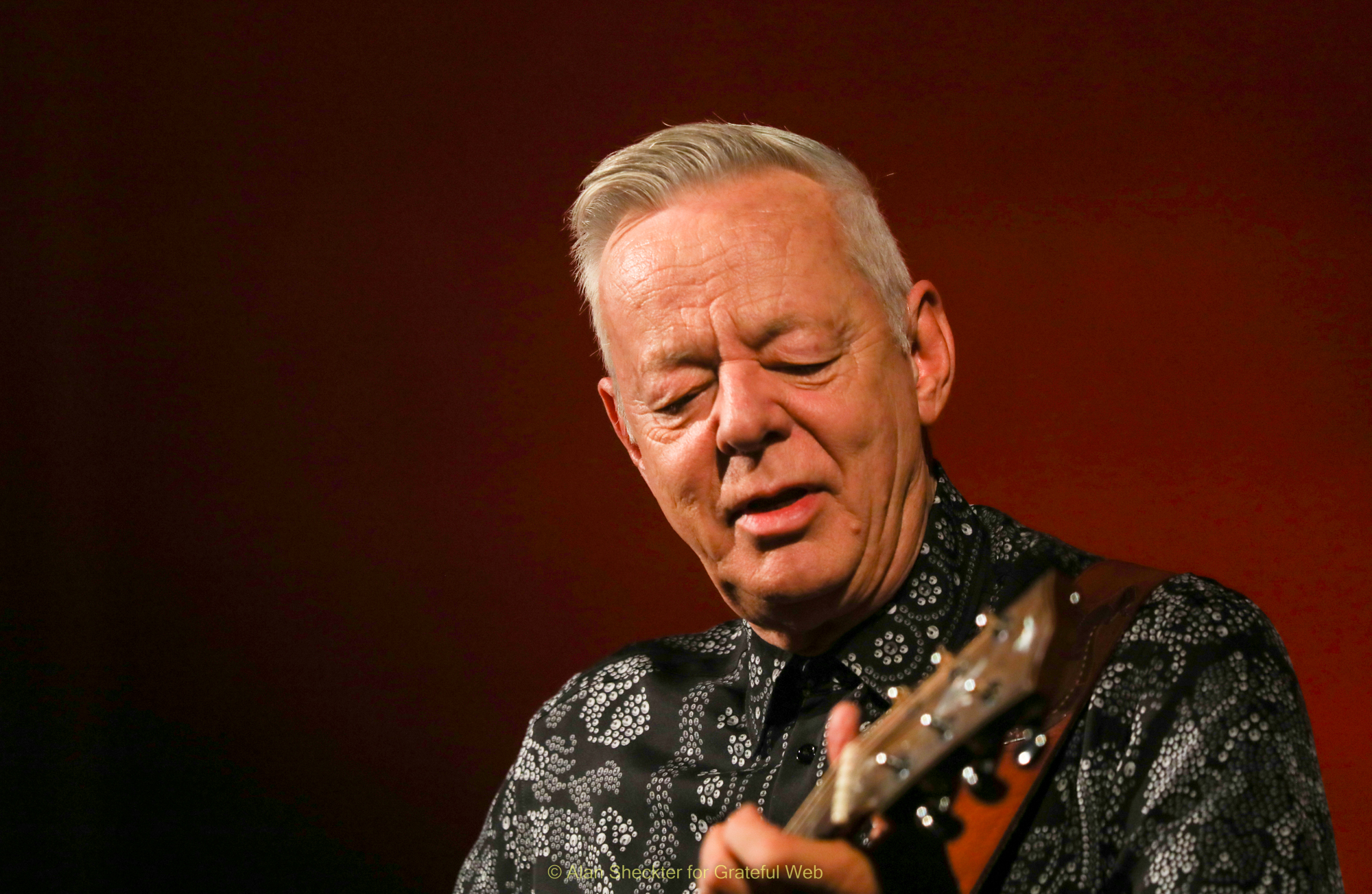
Emmanuel’s name often appears as Tommy Emmanuel, CGP, which stands for “Certified Guitar Player.” While that moniker may seem frivolous, that bestowment came from legendary picker Chet Atkins, “for lifetime contribution to the Art of Fingerpicking,” according to one of Emmanuel’s social media pages. Indeed, In July 1999, Atkins presented Emmanuel and four others – John Knowles, Marcel Dadi, Jerry Reed, and Steve Wariner, with the CGP title.
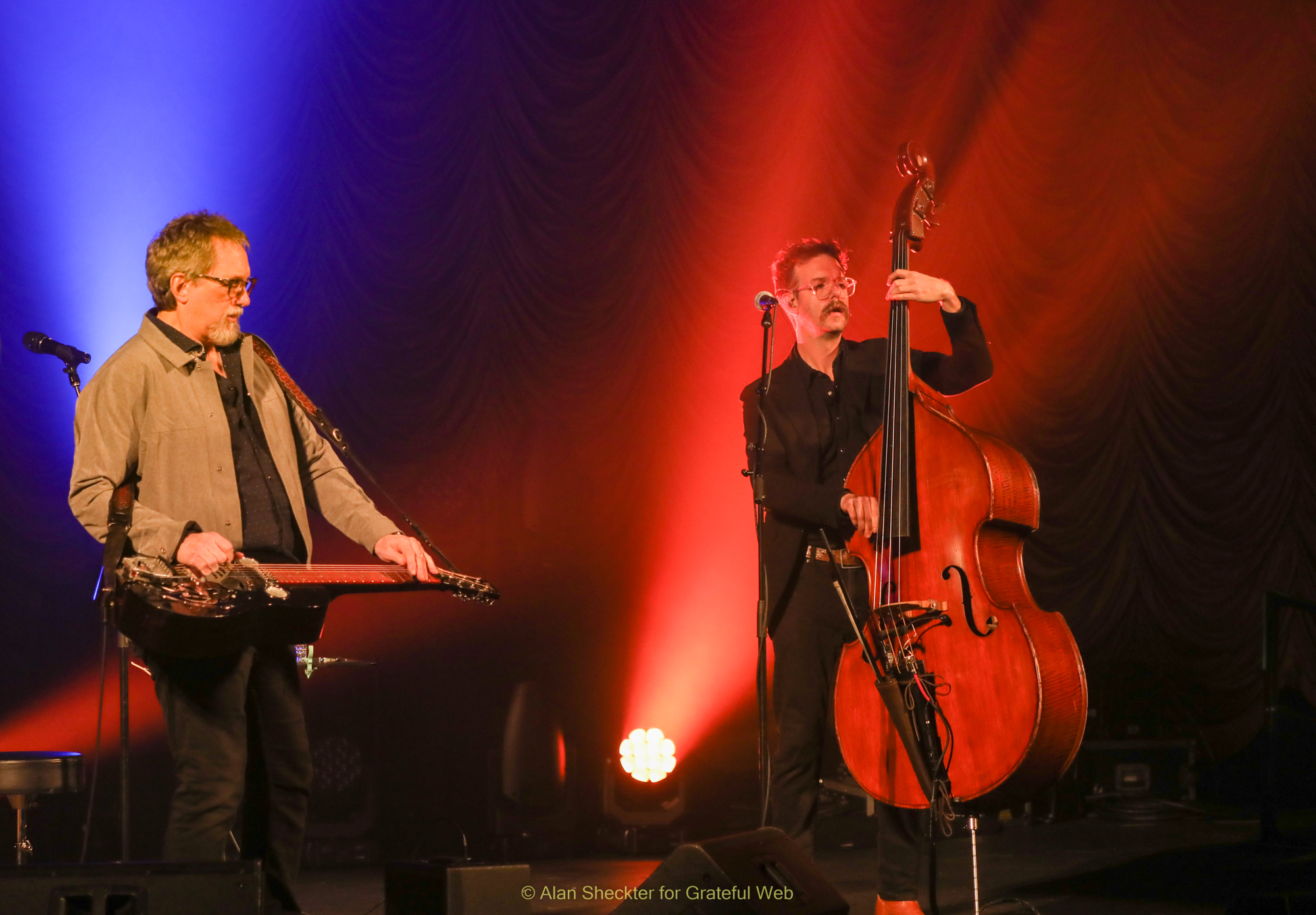
The inclusion of Douglas and Kimbro’s set should not be minimized. They earned a standing ovation for their 55-minute set that opened the proceedings. Douglas, an unrivaled dobro (resophonic guitar) player, is a 15-time Grammy Award winner who is said to have appeared on more than 1,500 albums. His sound integrates facets of bluegrass, country, rock, blues, jazz, and Celtic into his distinctive musical imagery.
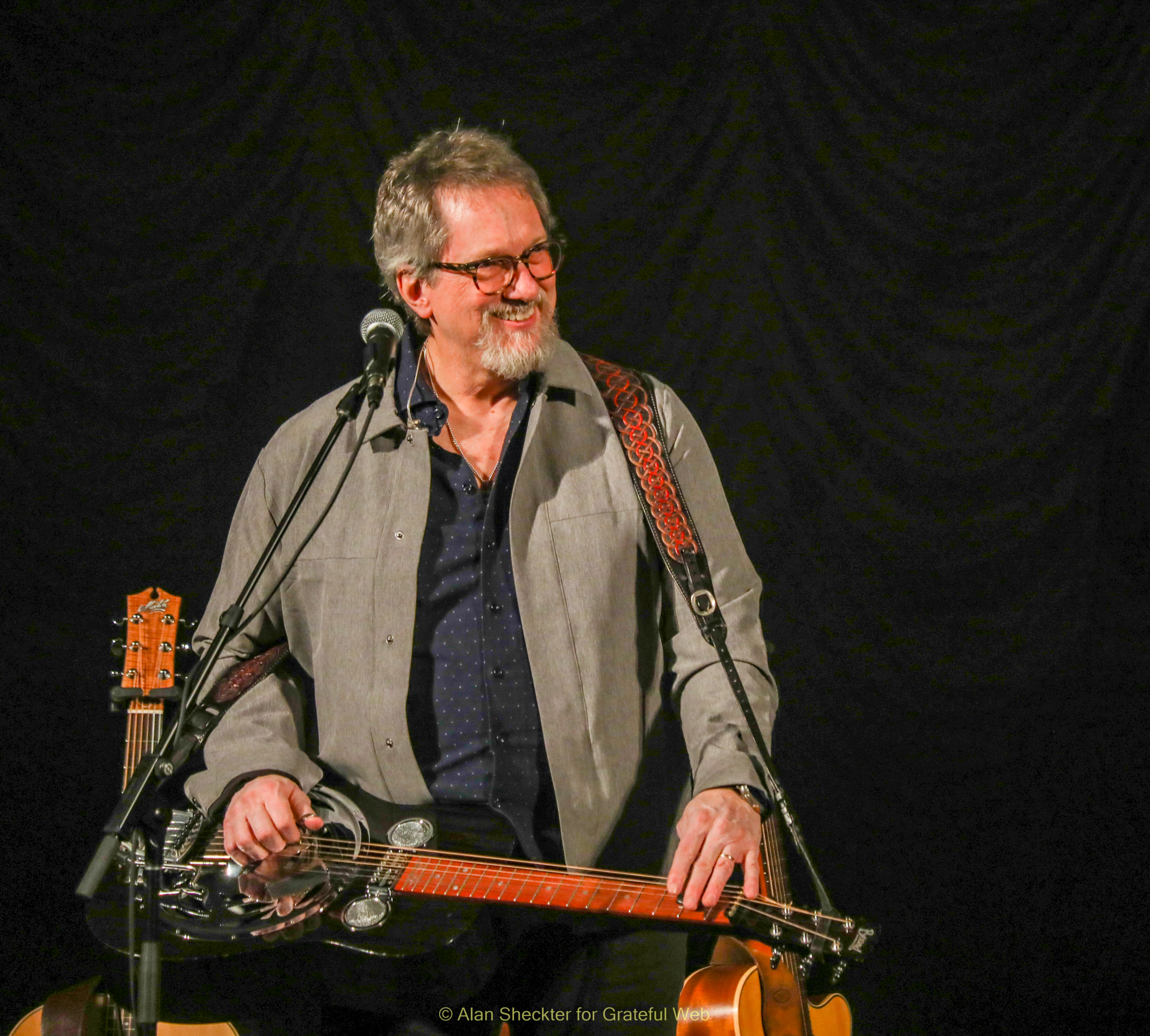
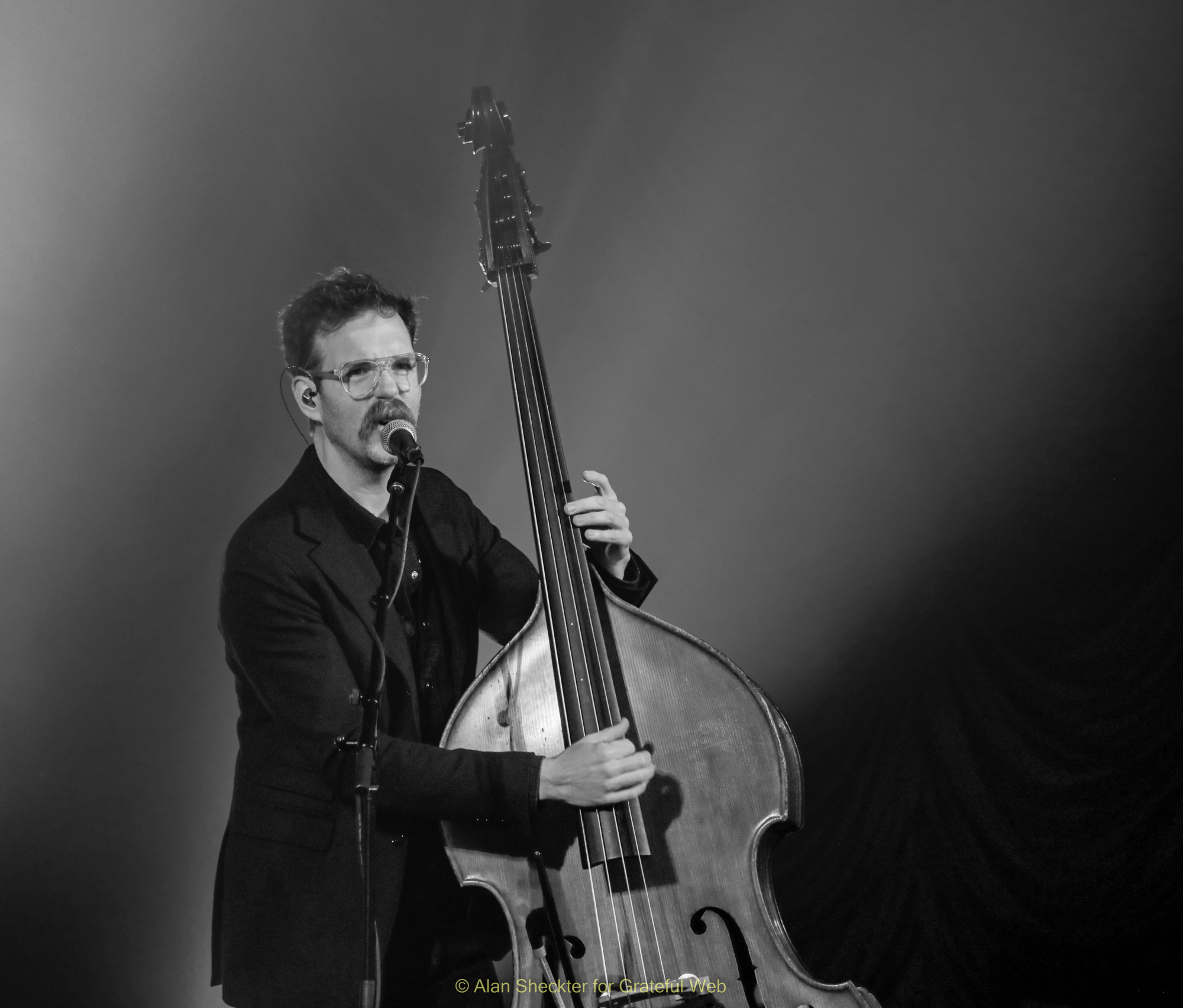
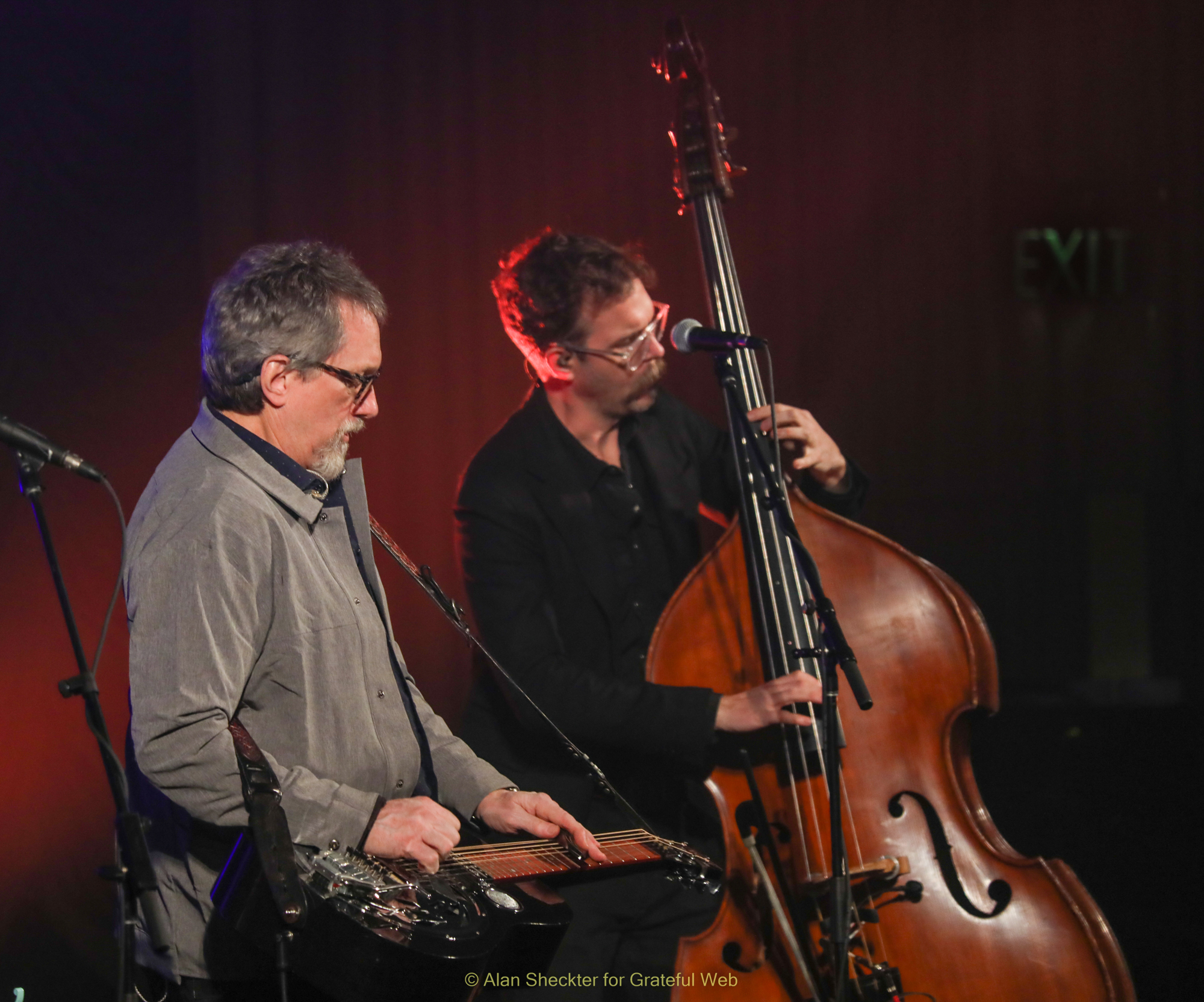
Douglas’s precise playing and beguiling sound mixed extremely well with Kimbro, who coaxed a whole lot of lively sounds out of his double bass. Douglas opened the set with a gentle instrumental, with Kimbro joining soon thereafter. “Misery, heartbreak, loss, and despair is sort of my bailiwick, Douglas joked to the crowd at one point. “I’m an Appalachian songwriter, <Kimbro’s> from East Tennessee.”
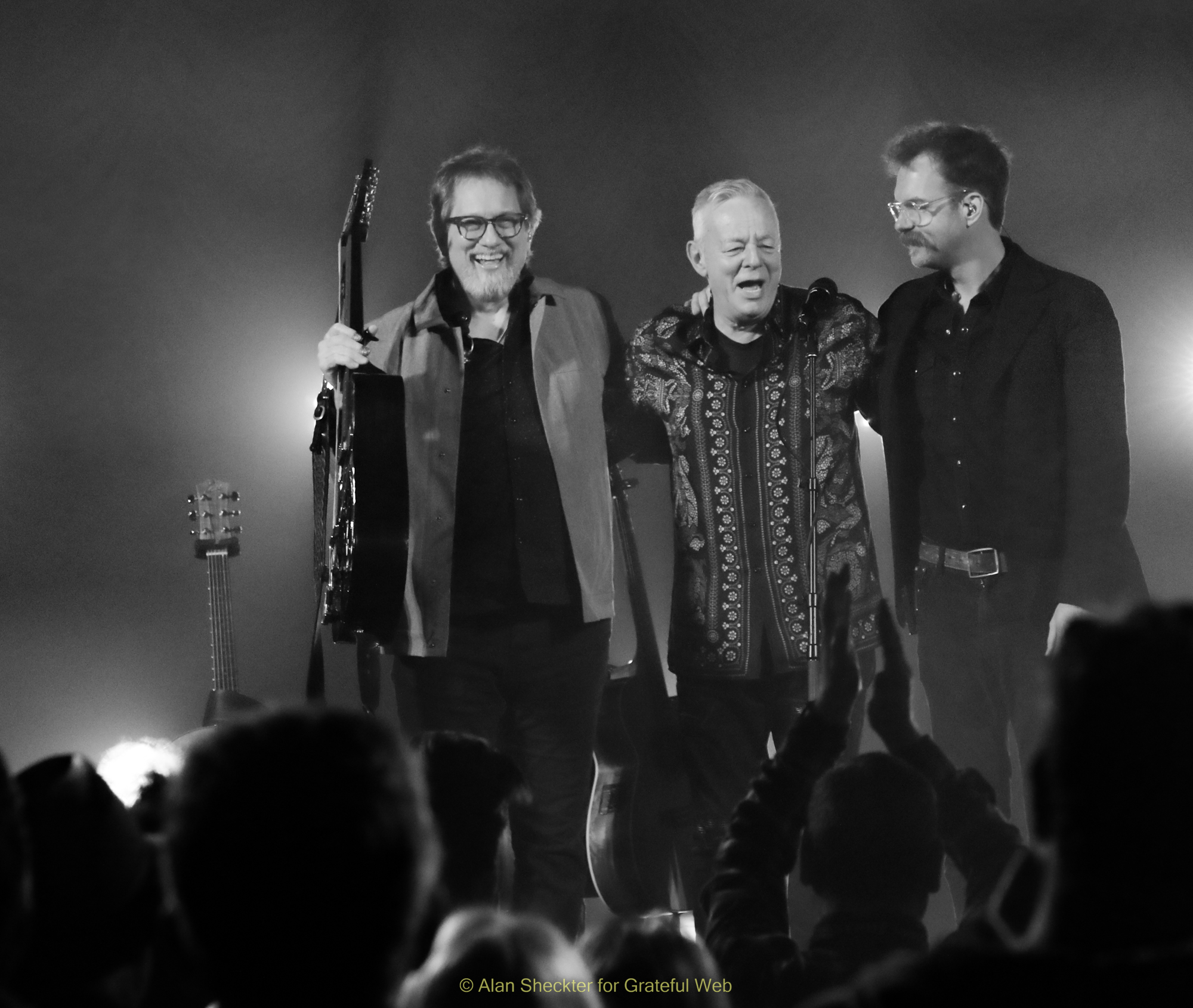
With their seamless interplay on display throughout, in storytelling and in music, the duo performed several instrumentals as well as a few covers such as blues ballad, “Something You Got” (1961, Chris Kenner with Allen Toussaint). The opening set also included a few Kimbro originals, such as “Michael Collins,” in honor of the Apollo 11 astronaut, and “Loyston,” a witty tale about a real Tennessee ghost town of the same name, long since buried following completion of a dam in 1936.





